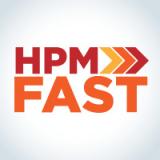Communications Micro-Learning Flight: Keeping the Connection: Addressing Challenges in Communicating Behind the Masks

Join Rachelle Bernacki, MD MS FAAHPM AGSF, Miguel Paniagua, MD and Stephanie Kiser, MD MPH in this Communications Micro-Learning Flight consisting of three 15-minute micro-learning sessions envisioned to address the pandemic challenges in delivering one of our most vital medical interventions: communication. This activity is designed to share novel skills we have put into practice for communicating "behind the masks", as well as reinforce existing communication principles which are now increasingly vital to providers throughout the healthcare system.
Category
- Academic/Education Strategies
- Communication/Teamwork
Format
- Video
- Self Study
Credits
- 0.75 ABIM MOC
- 0.75 CME (physician only)
- 0.75 Participation
Cost $49.00
Demystifying Complex Mechanical Support, Surgical Equipment & Devices in Palliative Care

The intent of this 4-part microlearning flight is to demystify complex mechanical support and other surgical equipment and devices commonly seen in hospice and palliative care patients.
Category
- Non-Pain Symptom Management
- Medical/Clinical Knowledge
Format
- Video
Credits
- 1.00 ABA MOC
- 1.00 ABIM MOC
- 1.00 ABS MOC
- 1.00 CME (physician only)
- 1.00 Participation
Cost $49.00
Assembly Highlight - Integrating Core Mental Health Competencies: A Growth Edge in Hospice and Palliative Care

Tune in to this keynote session from the 2023 Annual Assembly!
Category
- Hospice
Format
- Video
Credits
Cost $29.00
Assembly Highlight - Managing Anticoagulation for Atrial Fibrillation and Venous Thromboembolism on Hospice

Tune in to this Assembly Highlight from the Hospice track at the 2023 Annual Assembly!
Category
- Hospice
Format
- Video
Credits
Cost $29.00
Assembly Highlight - Embracing Uncertainty: The Role of Narrative in Decision-Making for Children with Medical Complexity

Tune in to this Assembly Highlight from the Pediatrics track at the 2023 Annual Assembly!
Category
- Pediatrics
Format
- Video
Credits
Cost $29.00
Assembly Highlight - Drainage Percutaneous Endoscopic Gastrostomy for Malignant Bowel Obstruction in Advanced Cancer: Patient Expectations and Decisional Regret

Tune in to this Assembly Highlight from the Scientific Research track at the 2023 Annual Assembly!
Category
- Research/Quality Improvement
Format
- Video
Credits
Cost $29.00
Assembly Highlight - Demystifying Limited Code: Standardizing Resuscitation Options in a Large Healthcare System

Tune in to this Assembly Highlight from the Quality Improvement track at the 2023 Annual Assembly!
Category
- Research/Quality Improvement
Format
- Video
Credits
Cost $29.00
HPM FAST Hospice Regulatory 2nd Edition (Reviewed 2022)

PLEASE READ: This activity was recently reviewed and edited to ensure the content is accurate. CME/MOC expiration dates have been extended through November 2, 2025 and may only be claimed one time.
Category
- Regulatory/Public Policy
- Hospice
- Board Prep
Format
- Interactive Enduring Activity
Credits
- 2.00 ABIM MOC
- 2.00 ABP MOC
- 2.00 CME (physician only)
- 2.00 Participation
Cost $90.00
2022 Grand Rounds: Year in Reflection

This activity includes the recordings of the three Grand Rounds that were held in 2022.
Category
- Research/Quality Improvement
- Leadership Development
- DEI: Addressing Disparities/Advancing Equity
Format
- Video
Credits
- 3.00 ABA MOC
- 3.00 ABIM MOC
- 3.00 ABP MOC
- 3.00 ABS MOC
- 3.00 CME (physician only)
- 3.00 Participation
Cost $120.00
Test Taking Like A Pro

This engaging interactive activity provides evidenced-based technical tips for navigating the certification exam and works to improve test taking skills.
Category
- Board Prep
Format
- Interactive Enduring Activity
Credits
Cost $25.00

 Facebook
Facebook Twitter
Twitter LinkedIn
LinkedIn Forward
Forward